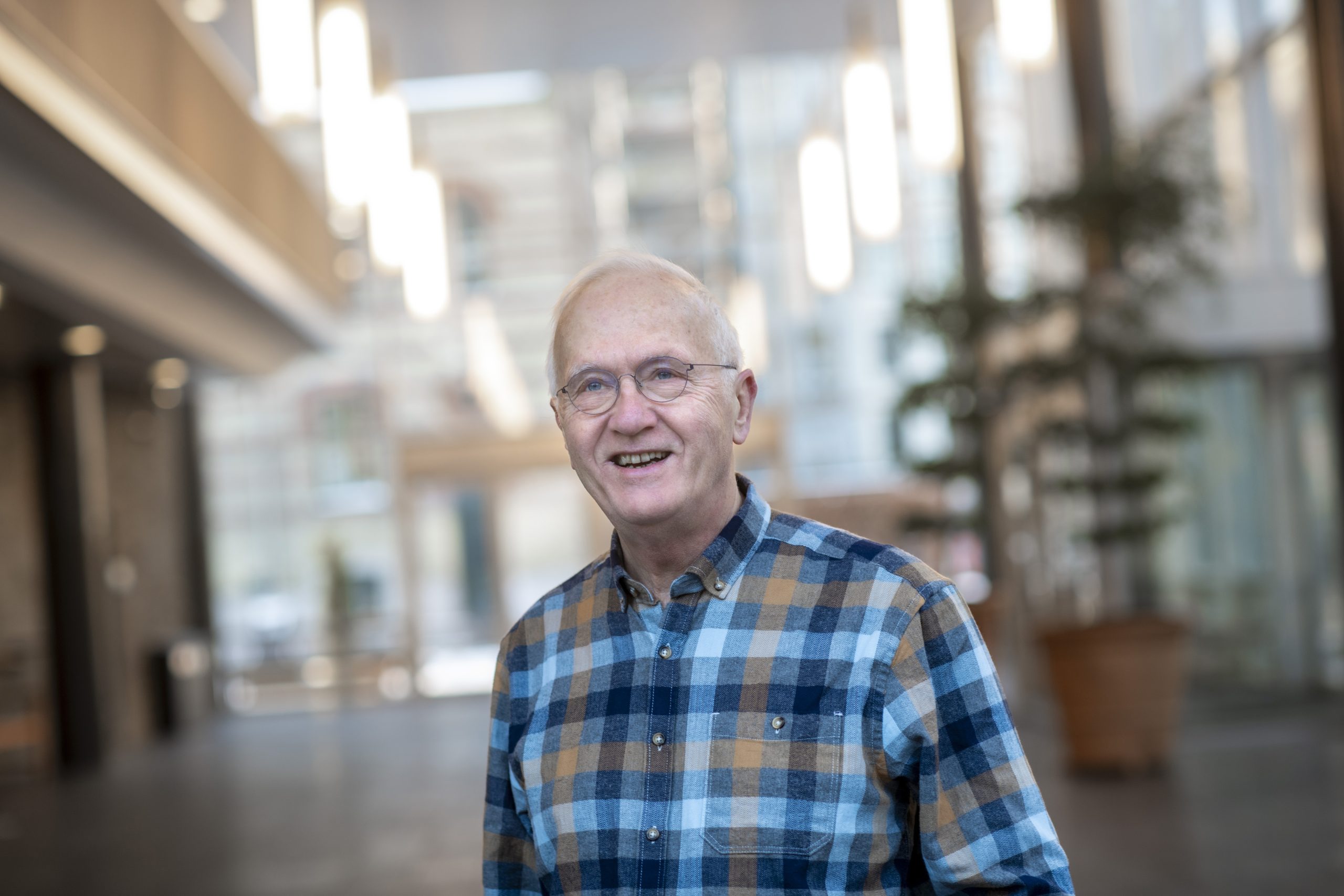The Hagedorn Prize 2024 of 1.5 million DKK is awarded to Professor Christian Torp-Pedersen for his extensive research over many years that has contributed to changing the way heart diseases are treated. The prize is awarded by the Danish Society of Internal Medicine (DSIM) and the Novo Nordisk Foundation to recognise an exceptional research or development effort within an area of Danish internal medicine.
Torp-Pedersen holds many titles, including professor, senior physician, MD and specialist in internal medicine and cardiology. He has earned international recognition and, as tribute to his extensive and significant research career, he has received several awards, including the Novo Nordisk Prize, the Research Prize from the Danish Cardiological Society and the Marie and August Krogh Prize. Now he can add the Hagedorn Prize to his impressive list.
“I was very happy when I heard,” says Torp-Pedersen. “It’s an excellent prize. Where I most wish to be valued and respected is among my colleagues, so I am very grateful for this award.”
Pia Nimann Kannegaard, chief physician and chairman of DSIM, says: “Christian Torp-Pedersen has an impressive research career behind him. He has had a great impact on research in many areas of cardiology and his importance for internal medicine cannot be overlooked. He is on the list of the most cited researchers in clinical medicine and continues to take an active part in training new researchers in the field. For the Danish Society for Internal Medicine, there is no doubt that Christian Torp-Pedersen is the right recipient of the Hagedorn Prize 2024.”
Drawn in by ultrasound
When Torp-Pedersen was a newly qualified doctor at Glostrup Hospital, the department was equipped with an ultrasound machine for the heart. It made a big impression on the young doctor, who had so far been limited by simpler methods of assessing heart disease.
“I found it completely miraculous that we could now look inside with the ultrasound machine and see what had happened to the heart,” he says.
Although it was the ultrasound machine that initially engaged Torp-Pedersen in heart research, his passion has since developed due to other driving forces.
“I can’t think of anything more fun to do,” he says, emphasizing the joy of working with ambitious and talented colleagues every day. He is also motivated by the desire to make a difference, something he has undoubtedly achieved.
During his long career, Torp-Pedersen has co-authored over 1,000 peer-reviewed articles in international journals and contributed to the development of new treatment methods in areas such as heart failure, arrhythmia and cardiac arrest. He has seen the treatment of heart disease undergo radical changes, and his own research has played a decisive role in this development.
“When it comes to, for example, the treatment of cardiac arrest, the research that I have been a part of has helped to change the attitude from ‘there is no point in doing anything’ to ‘it is very important that we actually do something’,” he says. “It is an area where we have made a significant difference.”
‘Fun, creative and has meaning’
Torp-Pedersen currently heads a network of around 300 researchers from Danish hospitals who are connected to servers in Statistics Denmark. They work actively with research based on national registers, contributing significantly to evidence-based knowledge in the field of health.
He is also a member of the editorial board for the European Heart Journal and the European Journal of Heart Failure, and for many years has sat on the Heart Association’s research committee.
When asked how he juggles all his commitments, he replies: “I collaborate an incredible amount. Plus, I have a focused existence, where what matters to me is my work and my family.”
For now, he has no plans to put the brakes on.
“I’ll stop when I die,” he says. “What I do is fun, creative and has meaning for many people. I’m not bad at it either. If I suddenly had to retire, what would I do?”
Torp-Pedersen will receive the award at the DSIM annual meeting on 1 March 2024.
About the Hagedorn Prize
The Hagedorn Prize was established by the Danish Society of Internal Medicine in 1966 and is awarded at the Society’s annual general meeting to recognise excellent research or development efforts within internal medicine in Denmark. The accompanying award of 1.5 million DKK includes a personal award of 250,000 DKK and an award for research or development work of 1.25 million DKK. The Prize also includes the Hagedorn Medal.
About the Danish Society of Internal Medicine
The Danish Society of Internal Medicine, which has almost 4,500 members, is an umbrella organisation for the nine internal medicine specialties in Denmark. The Society aims to promote scientific research in internal medicine and the continuing education of the specialist physicians in the field. The Society was established in 1916 and has a Board of Directors of nine members selected by the boards of each of the nine internal medicine specialties.









